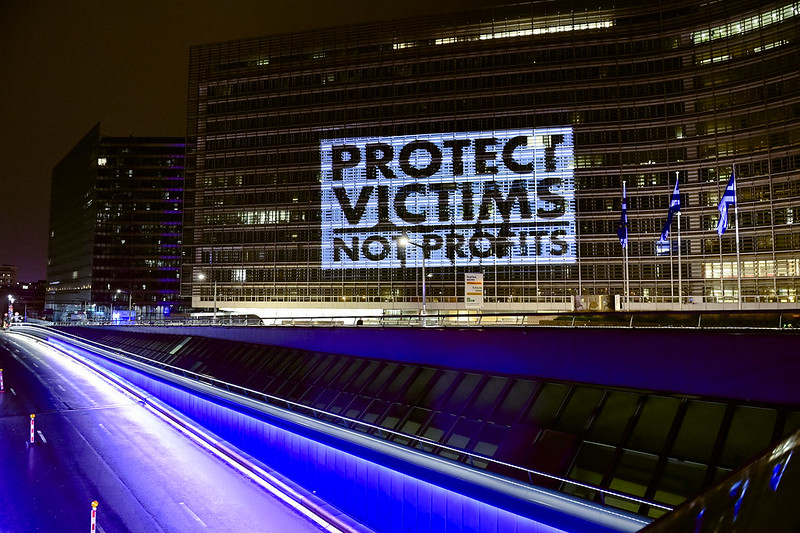With the final political trilogue concluded in the early hours of December 14th, Friends of the Earth Europe acknowledges a new step towards the final adoption of the Corporate Sustainability Due Diligence Directive (CSDDD). Regrettably, key elements like environmental protection, accountability for contributing to the climate crisis and due diligence obligations were dropped in the negotiations.
The conclusion of the years-long negotiations represent an important milestone for the protection of human rights, the environment and the climate. Large and high-risk multinational corporations will have to address risks to people, communities, and the environment linked to their operations and business relationships. Moreover, victims will be able to hold companies liable before EU courts if they are harmed through the companies’ operations.
Today’s deal delivers much-needed access to justice measures for victims of corporate abuse, and in particular allows for increased access to evidence. It also introduces a duty for companies to adopt and put into effect a climate transition plan in line with the 1.5°C targets, with emissions reductions goals based on 5-year increments until 2050.
The deal, however, falls dramatically short in a few areas. Climate due diligence obligations were cut entirely from the directive with the removal of the Paris Agreement from the annex. There are large gaps in the range of environmental damage covered by the scope of the directive. Despite financial actors being subjected to climate transition plan duties, there are no due diligence obligations related to financial services. In addition, citizens will not be able to bring companies to court for not complying with the prevention and mitigation of climate impacts, and much remains uncertain about administrative authorities’ mandate to enforce the implementation of climate transition plans.
Alban Grosdidier, climate campaigner at Friends of the Earth Europe, said:
“This is a bittersweet moment for those who seek to hold multinational companies accountable for their impacts. The deal is an important milestone towards justice, but France and Germany made sure the directive is not delivering to its full potential by blocking and watering down key provisions. In particular, the exclusion of climate liability robs people from a much-needed course of action against cynical multinational corporations selling off our climate’s future for short-term profits, and the exemption of financial services banks can keep on banking on human rights violations.”
What’s happening after this political deal?
Now that the three co-legislators – the European Parliament, the EU Council and the European Commission – have reached a political deal, technical meetings will refine the text, ensure it is appropriately written and that there are no loopholes lurking. Following this, the Council, under the upcoming Belgian presidency, and subsequently the European Parliament will go through two final votes to approve the directive’s definitive text in the early months of 2024; paving the way for the directive’s implementation at the national level.







